Replacing electric hot water heater - should I go hybrid?
jjacobsnyc
9 years ago
Featured Answer
Comments (37)
randy427
9 years agoxedos
9 years agoRelated Professionals
Worcester Plumbers · Vienna Handyman · Minnetonka Mills Kitchen & Bathroom Remodelers · Athens Kitchen & Bathroom Remodelers · Eagle Kitchen & Bathroom Remodelers · Hanover Township Kitchen & Bathroom Remodelers · Islip Kitchen & Bathroom Remodelers · Jacksonville Kitchen & Bathroom Remodelers · Kettering Kitchen & Bathroom Remodelers · Payson Kitchen & Bathroom Remodelers · Placerville Kitchen & Bathroom Remodelers · Rancho Cordova Kitchen & Bathroom Remodelers · Sicklerville Kitchen & Bathroom Remodelers · South Park Township Kitchen & Bathroom Remodelers · Terrell Kitchen & Bathroom Remodelersjakethewonderdog
9 years agoSaltiDawg
9 years agoSaltiDawg
9 years agojakethewonderdog
9 years agojrb451
9 years agoSaltiDawg
9 years agojrb451
9 years agoSaltiDawg
9 years agogrubby_AZ Tucson Z9
9 years agojakethewonderdog
9 years agoSaltiDawg
9 years agojakethewonderdog
9 years agoSaltiDawg
9 years agoShe Abe
9 years agoSaltiDawg
9 years agobus_driver
9 years agojrb451
9 years agoSaltiDawg
9 years agojrb451
9 years agoSaltiDawg
9 years agormtdoug
9 years agoSaltiDawg
9 years agormtdoug
9 years agojakethewonderdog
9 years agoSaltiDawg
9 years agojrb451
9 years agojakethewonderdog
9 years agojrb451
9 years agocrhbobby1
9 years agocrhbobby1
9 years agotedred
9 years agoSaltiDawg
9 years agomdichter
9 years agoUser
9 years ago
Related Stories

GREAT HOME PROJECTSHow to Switch to a Tankless Water Heater
New project for a new year: Swap your conventional heater for an energy-saving model — and don’t be fooled by misinformation
Full Story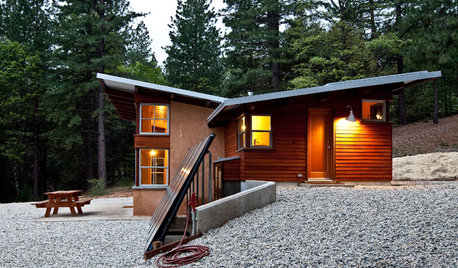
GREAT HOME PROJECTSHow to Add a Solar Water Heater
Lower energy bills without a major renovation by putting the sun to work heating your home’s water
Full Story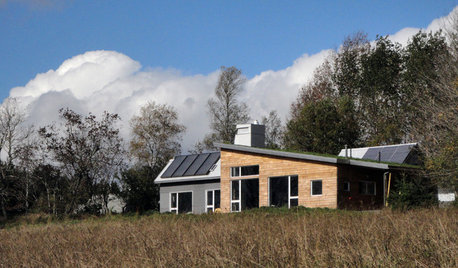
GREEN BUILDINGHouzz Tour: Going Completely Off the Grid in Nova Scotia
Powered by sunshine and built with salvaged materials, this Canadian home is an experiment for green building practices
Full Story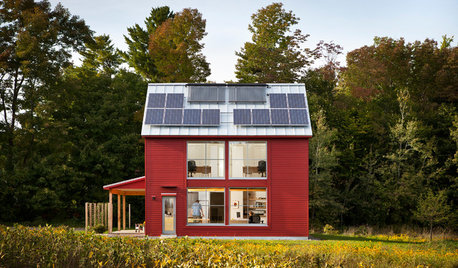
GREEN BUILDINGGoing Solar at Home: Solar Panel Basics
Save money on electricity and reduce your carbon footprint by installing photovoltaic panels. This guide will help you get started
Full Story
SAVING WATERHouzz Call: Are You Letting Go of Your Lawn?
Many facing a drought are swapping turf for less thirsty plantings. If you’re one of them, we’d like to hear about it
Full Story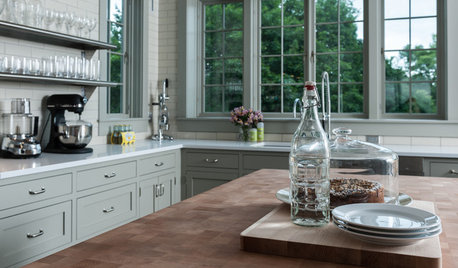
MOST POPULARKitchen Evolution: Work Zones Replace the Triangle
Want maximum efficiency in your kitchen? Consider forgoing the old-fashioned triangle in favor of task-specific zones
Full Story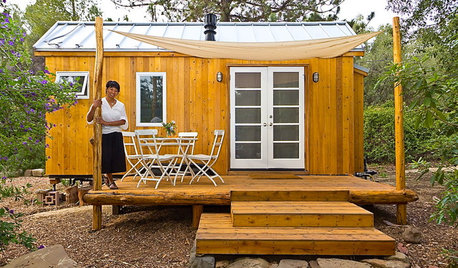
MOST POPULARHouzz Tour: Going Off the Grid in 140 Square Feet
WIth $40,000 and a vision of living more simply, a California designer builds her ‘forever’ home — a tiny house on wheels
Full Story
WINDOW TREATMENTSHow Low Should Your Drapes Go?
Hover, brush the floor or pool like Scarlett O'Hara's tears — we give you the lowdown on curtain length options
Full Story
FLOWERSRudbeckia Mania: Go Beyond Black-Eyed Susan in the Garden
Branch out from typical nursery fare, with lesser-known Rudbeckia species that have delightfully unexpected features
Full Story
GARDENING AND LANDSCAPINGHow to Make a Pond
You can make an outdoor fish paradise of your own, for less than you might think. But you'll need this expert design wisdom
Full StoryMore Discussions






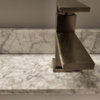
Elmer J Fudd